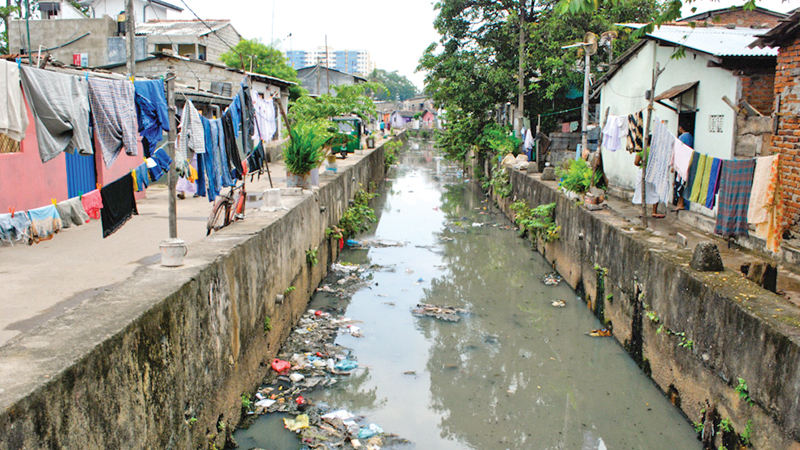 Despite decades of development efforts, thousands of communities, particularly in rural and underserved urban areas, continue to struggle with limited access to clean water, inadequate sanitation, and unhygienic conditions. The economic downturn has exacerbated these challenges, limiting investment in infrastructure and reducing household spending on essential hygiene products. The consequences are severe: an increase in waterborne diseases, loss of productivity, and a widening gap in social inequality.
Despite decades of development efforts, thousands of communities, particularly in rural and underserved urban areas, continue to struggle with limited access to clean water, inadequate sanitation, and unhygienic conditions. The economic downturn has exacerbated these challenges, limiting investment in infrastructure and reducing household spending on essential hygiene products. The consequences are severe: an increase in waterborne diseases, loss of productivity, and a widening gap in social inequality.
The Marga Institute, a think tank and research institution, recently published the findings of a study on the economic impact of inadequate drainage and wastewater management on Sri Lanka’s urban lower-middle-income communities. The research highlights the health risks, financial hardships, and infrastructural failures caused by poor sanitation systems.
“The health impact of these issues has been frequently researched, but less attention has been given to their economic impact on the workforce in the informal sector. In this study, we are talking about how inadequate drainage systems have led to frequent flooding, and how poor sanitation facilities have led to an increase in water-borne diseases. We have discussed the economic burden of these issues; it can be in the form of medical expenses, workday losses or even property damages.
“Deficiencies in the waste management system have worsened people’s struggles with sanitation. Government intervention is necessary to transform allocated budgets into effective infrastructure development. Public awareness of how these deficiencies affect their lives is also important in pushing authorities to resolve them,” said Marga Institute Research Assistant Hasani Sonali.
Speaking at the report launch press briefing held in Ethul Kotte recently, she pointed out that unplanned urbanisation has worsened sanitation and drainage problems, leading to frequent flooding, stagnant water, and inefficient waste disposal.
The survey included 1,329 households covering at least 50 per district. High-density settlements and households with an income threshold of Rs. 27,000 were considered.
We mostly selected households near open canals and streams. Some of these canals were referred to as ‘kunu ela’ (dirty canal) by the residents. They have become breeding grounds for mosquitoes. Skin infections like blue baby syndrome are common. Authorities must pay urgent attention to clean these waterways,” she said.
Among the people who participated in the survey, 34 percent were engaged in entrepreneurial activities such as operating small shops or selling cooked food, while 33 percent were unemployed. Twenty percent were daily wage earners like labourers, tea pluckers, three-wheel drivers and tailors.
Using the survey data, a loss index was developed to quantify sanitation quality, absenteeism, and income losses due to medical expenses. According to this index, the Mullaitivu, Polonnaruwa and Kegalle districts performed well to be at the top, while the Kalutara, Gampaha and Hambantota Districts received the lowest ranks, highlighting the need for government intervention to resolve water, sanitation and hygiene issues faced by low-income people.
“For example, none of the respondents in Nuwara Eliya considered their drinking water source safe, yet many of them do not have access to tap water either. Similarly, people in the Puttalam, Matale and Anuradhapura Districts reported multiple issues with their drinking water. In Gampaha, people complained of chemical contamination, while concerns about fecal matter contamination and high calcium concentration were raised in other districts,” the Research Assistant said.
According to the Marga Institute Report, Kalutara, Gampaha, and Hambantota experienced the highest economic losses due to inadequate drainage and wastewater management. The Report notes that poor drainage has led to increased workday and school absenteeism. High workday losses were recorded in Kalutara (14 days), Gampaha (11 days), and Matara and Colombo (5 days) due to illness and time spent fetching water.
Households spend about Rs 2,500–15,000 annually on treatments for waterborne diseases, with some exceeding Rs 50,000. High medical costs due to illnesses such as dengue, chikungunya, cholera, and stomach infections were observed in Gampaha, Kalutara and Hambantota.
“Waste management is interlinked to drainage management. Inefficient waste collection was a common complaint. In the Northern Province, residents reported that municipal workers demanded tips to collect garbage. When people lack proper waste disposal methods, they dump waste haphazardly, leading to blocked drainage systems. Drainage issues are high in the dry zone for this reason. Limited drainage capacity contributes to urban flooding, especially during the rainy season,” she said.
Sonali said that frequent interruptions to water supply were another complaint they came across during the survey. “Such water interruptions impact women in many ways. Some women have to walk long distances to fetch water, reducing their ability to engage in economic and social activities. In some areas, people resort to drinking brackish water as a result,” she said.
She pointed out that Government authorities face obstacles in addressing these issues, including limited access to water purification facilities, scarce water sources, low public awareness of proper sanitation practices, and challenges related to stray animals. “In the Monaragala District, officials reported that the chlorine limit for water treatment had already been reached, and there was a lack of funds for further purification,” she said.
“In some areas, Budget allocations have been made to improve the sanitary conditions, but some of them remained unutilised. Many areas have seen little improvement in sanitation infrastructure despite Government spending. It might be because the authorities have not properly identified the pressing needs of the people.
“We urge the authorities to monitor the sustainability of projects. Do not abandon them halfway. The projects should be started after a careful assessment of the people’s needs and should be fully implemented regardless of Government changes. Remember, people’s issues do not change with the Government,” she said.
Pic by Sudath Nishantha









